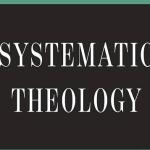Robert John Russell on Hume
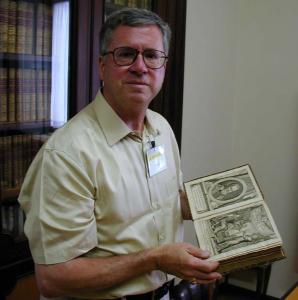
Just as Plato advanced philosophy by placing Socrates into dialogue with a variety of interlocuters, Robert “Bob” John Russell and I have each been functioning as interlocuters for each other. For about four decades now. I am convinced that we have sharpened each other’s thought through critique and revision. It continues.
Bob, as you may or may not know, is a hybrid physicist and theologian. He is founder of the Center for Theology and the Natural Sciences (CTNS) at the Graduate Theological Union. For twenty years Bob and I have co-edited the journal, Theology and Science.
Bob offers a critique of what I said in the Patheos series on miracles. Perhaps you as readers might find Bob’s critique helpful in amplifying the issues at stake.
Setting the stage: God’s miraculous vs non-miraculous action
One of Bob’s lifetime achievements is his formulation of NIODA, Non-Interventionist Objective Divine Action. That is, Bob has demonstrated how we can coherently conceive of God’s providential action in nature’s world without breaking any laws of nature. I cited Bob on NIODA in an earlier post, “Is Special Divine Action miraculous? Miracles 4.”
“NIODA is a distinct category from that of miracle.” Russell identifies God’s providential care in terms of “special acts of God that are objective but not miraculous” (R. J. Russell, Cosmology from Alpha to Omega: The Creative Mutual Interaction of Theology and Science 2008, 128-129).
Here, Bob has described God’s non-miraculous action. Does God also act miraculously? Of course. But when explaining a miracle, more needs to be said.
Opening the curtain: does a miracle break a law of nature?
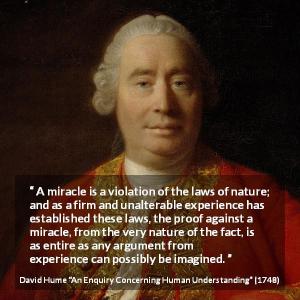 Before we turn to Russell on Hume, we need to open the curtain to see the central issue: does a miracle necessarily break a law of nature?
Before we turn to Russell on Hume, we need to open the curtain to see the central issue: does a miracle necessarily break a law of nature?
The cynosure of this concern is David Hume’s assumption that to be a miracle a divine act must break a law of nature. I first cited Hume who seems to lay down an axiom: a miracle is “a transgression of a law of nature by a particular volition of the Deity, or by the interposition of some invisible agent” (Hume 1748, X.90). Then I cited the doctoral dissertation of Donghwi Kim.
A miracle “is a unique occurrence that happens due to divine will, which is a temporary and inexplicable exception to the ordinary course of nature for the purpose of showing that God has acted in history and nature”(Kim, 2023, 432).
When the Bible talks about “signs and wonders” (Acts 2:22), it does not stipulate that a sign or wonder requires the breaking of a natural law. So, is Hume’s axiom necessary? Or, might it be an unnecessary insertion?
The main plot: Robert John Russell critiques my critique of David Hume (1711-1776)
Now we turn to Russell on Hume. In what follows I’ll place Bob’s words in green; my words in the previous post in blue; and my own commentary in black.
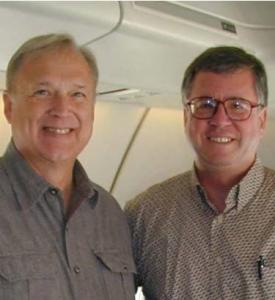
Ted, you say: “Hume’s shadow in recent centuries has obnubilated New Testament studies because the majority of scholars assume prior to investigation that Jesus’ miracles could not be historical.”
Ted, I think it would be helpful and more convincing to give a couple of examples.
Then, Bob draws our attention to the controversy raised by NT scholar, Craig Keener. Click here for a threaded debate.
Ted, you then discuss two fallacies (and later a third fallacy) in Hume’s argument. Great. I’d suggest augmenting this with the following points: When I teach on Hume and miracles, I usually lay out five assumptions behind Hume’s argument and how they have been undercut by developments in science since Hume.
- Hume: Newtonian physics offers a complete explanation of the dynamics of nature. But we now know that it doesn’t offer a complete explanation of nature. Quantum Mechanics (QM) demonstrates indeterminacy at the subatomic level.
- Hume: The universe is Newtonian / deterministic. But with QM we know that at least at the subatomic level the universe can be seen as indeterministic (Copenhagen interpretation of QM).
- Hume: The universe is timeless and unchanging. But with modern cosmology we know that the universe is ‘historical’. The universe has a unique sequence of events from t=0 to the endlessly expanding cosmic future. (Incidentally this is one argument against the sharp distinction you make later between nature and history!)
- Hume: The phenomenon of life on earth is static and can be separated into non-life and life. But we know now that the phenomenon of life on earth is evolutionary, with life and mind emerging out of the underlying dynamic physical systems.
- Hume: The laws of physics are prescriptive, and nature obeys them. Hence they cannot be broken. Actually, this claim of the laws being prescriptive is debatable. See for example Nathan Rockwood, “Hume on Laws and Miracles.” Rockwood calls the prescriptive option “the Governing Laws of Nature.”
But we now have a more generalized claim against Hume than simply that Hume relies on induction from a finite set of facts to general laws and then lifts up these up into being ontological and hence governing nature. We, however, can interpret the laws as descriptive, not prescriptive, pointing the nature itself as the real source of causal regularity. I then generalize this further to say that God provides the causality in nature as a part of creating nature ex nihilo, and that God can create new laws — and hence the importance of eschatology.
This in sum, this is Russell on Hume. Yet, there’s more.
More plot: can we distinguish nature from history?
Ted, you say, “Every historical event is unique. Every law of nature, in contrast, describes regularities in the form of general principles. One cannot deduce a unique historical event from such general principles.”
I think this is an important starting point. But it reflects an unnecessary and unhelpful dichotomy between nature and history. This dichotomy seems to be grounded in the 19th c. distinction between historical and natural sciences which, in turn, was based on Kant’s epistemology. Remember, every historical event arises out of and is sustained from below by the phenomena of physics, biology and the rest of the emergent disciplines.
I think Donghwi Kim’s discussion about miracles having both underlying regularities wrapped in unique features is more helpful. I suggest something like this:
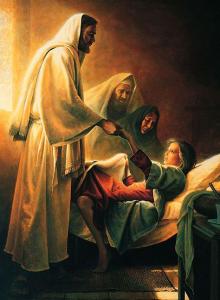
“In the emergent epistemology as generally adopted by scholars in theology and science, the historical sciences emerge irreducibly from the natural sciences, such that they contain both properties and processes which cannot be reduced in total to those of the underlying disciplines as well as those which are already found in these underlying disciplines.
‘The example I use is the wetness of water, an emergent property of the water molecules bound together, and the weight of water, a property of each water molecule. In the context of nature and history, the argument is that every historical event will have both unique and unrepeatable properties and processes, and yet the event will also contain the properties and processes described by the underlying disciplines. Since these underlying disciplines include physics, and since physics regularly refers to universal properties and processes such as the mass of the electron and the gravitational attraction of all matter, every unique historical event will also contain these universal properties and processes.
‘So, for example, President Lincoln was assassinated on April 16, 1855 by John Wilkes Booth, a truly unique and incredibly impactful event. But the psychology of Booth reflects, in part, the underlying mental processes of jealousy, vengeance, self-righteousness, etc., that are typical of assassins throughout world cultures and history. These processes in turn have emerged through biological evolution from the neuroscientific and ethological/behavioral properties and processes of prehuman primates, etc. Hence the assassination of Abraham Lincoln is both a politically unique historical event and a morally tragical example of prevalent social and biological phenomena that trace back into the earliest millennia of primate, indeed of all, animal evolution.”
In short, I’d prefer to say that every historical event is both unique in its emergent properties and processes and yet it emerges out of the underlying social and evolutionary processes which can, in part, be described by general laws of nature reflecting regularities in the form of general principles. One cannot deduce a unique historical event from such general principles. But neither can one separate historical events from the universal natural principles underlying them and contained in them.
Coda: Ted responds to Bob on nature and history
You’re quite right, Bob, to challenge my assumed distinction between nature and history. Yes, it derives from 19th C theological discussions that perdured right through the period of neoorthodoxy in the 20th C.
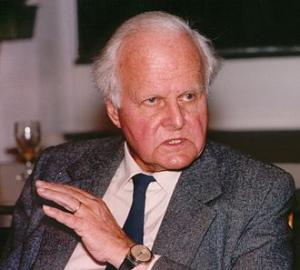
I genuinely think that nature is historical, inescapably historical. Nature might not look that way if scientists try to formulate general laws that apply universally regardless of specific time and place. Yet, the physical world we actually know began with the Big Bang and has been historically changing ever since.
I rely here on physicist Carl Friedrich von Weizsäcker (1912-2007) and theologian Wolfhart Pannenberg (1928-2014). Von Weizsäcker wrote an important book in 1949, The History of Nature. Pannenberg felt confident in following von Weizsäcker by declaring that history is the fundamental category for reality. This meant, for Pannenberg, that history would become the fundamental category for theology too (Pannenberg 1970-1971).
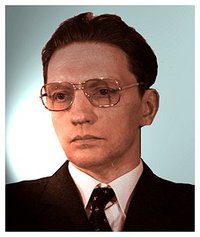
Bob, you synthesize the general laws of nature with the uniqueness of historical events while carefully stipulating a distinction. “One cannot deduce a unique historical event from such general principles. But neither can one separate historical events from the universal natural principles underlying them and contained in them.”
The only physical reality we know changes over time. Therefore, Bob, you’re correct: my presumed distinction between nature and history is at least confusing if not downright misleading.
Conclusion: Russell on Hume
I think Robert John Russell has turned my monologue into a duologue, adding much value to the ensemble.
The key to unlocking the contemporary impasse regarding the miraculous is to avoid being bullied by David Hume. We need not assume that a miracle must by definition break a law of nature. When we think of nature as already historical—when we think of indeterminism at the subatomic level which makes every natural event a historically contingent event—then there is plenty of scientific room for signs and wonders to take place within nature. God was busy with signs and wonders long before Hume’s axiom said this would be impossible.
Patheos ST 4149. Miracles 9
▓
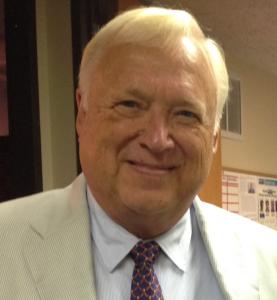
For Patheos, Ted Peters posts articles and notices in the field of Public Theology. He is a Lutheran pastor and emeritus professor at the Graduate Theological Union. He co-edits the journal, Theology and Science, with Robert John Russell on behalf of the Center for Theology and the Natural Sciences, in Berkeley, California, USA. His single volume systematic theology, God—The World’s Future, is now in the 3rd edition. He has also authored God as Trinity plus Sin: Radical Evil in Soul and Society as well as Sin Boldly: Justifying Faith for Fragile and Broken Souls. See his website: TedsTimelyTake.com. Watch for his new 2023 book, The Voice of Public Theology, published by ATF Press.
▓
Bibliography
Hume, David. 1748. Enquiry Concerning Human Understanding. Project Gutenberg: https://www.gutenberg.org/files/9662/9662-h/9662-h.htm.
Kim, Donghwi. 2023. Miracles Reconsidered: A Fresh Assessment from Philosophy, Science, and Theology. Graduate Theological Union Ph.D. dissertation: unpublished.
Pannenberg, Wolfhart. 1970-1971. Basic Questions in Theology, 2 Volumes. Minneapolis: Fortress.
Russell, Robert John. 2008. Cosmology from Alpha to Omega: The Creative Mutual Interaction of Theology and Science. Minneapolis MN: Fortress Press ISBN 978-0-8006-6273-8.
Russell, Robert John. 2001. “Divine Action and Quantum Mechanics.” In Quantum Mechanics: Scientific Perspectives on Divine Action, by Philip Clayton, Kirk Wegter-McNelly, and John Polkinghorne, eds Robert John Russell, 293-328. Vatican City State: Vatican Observatory Publications.



